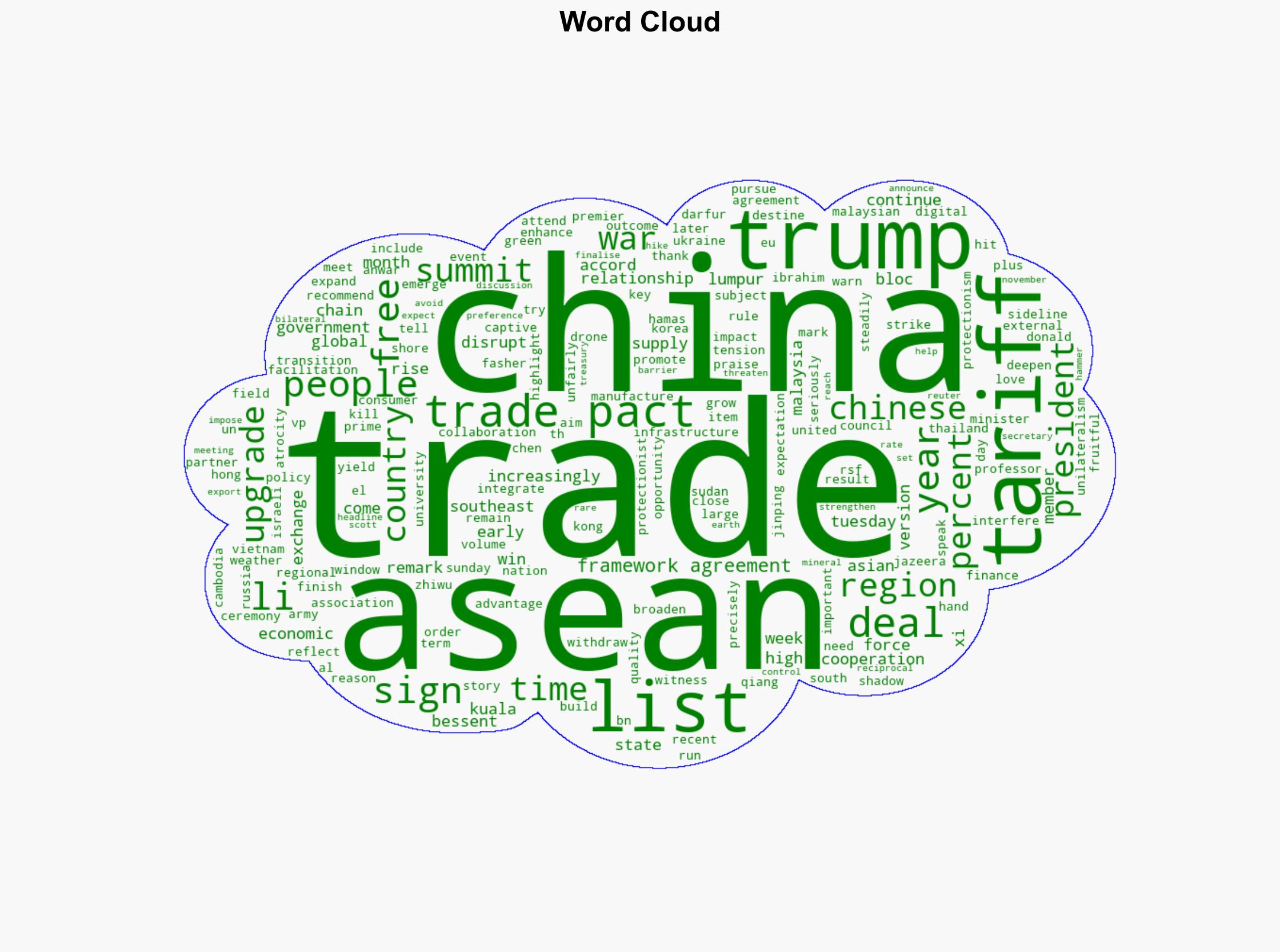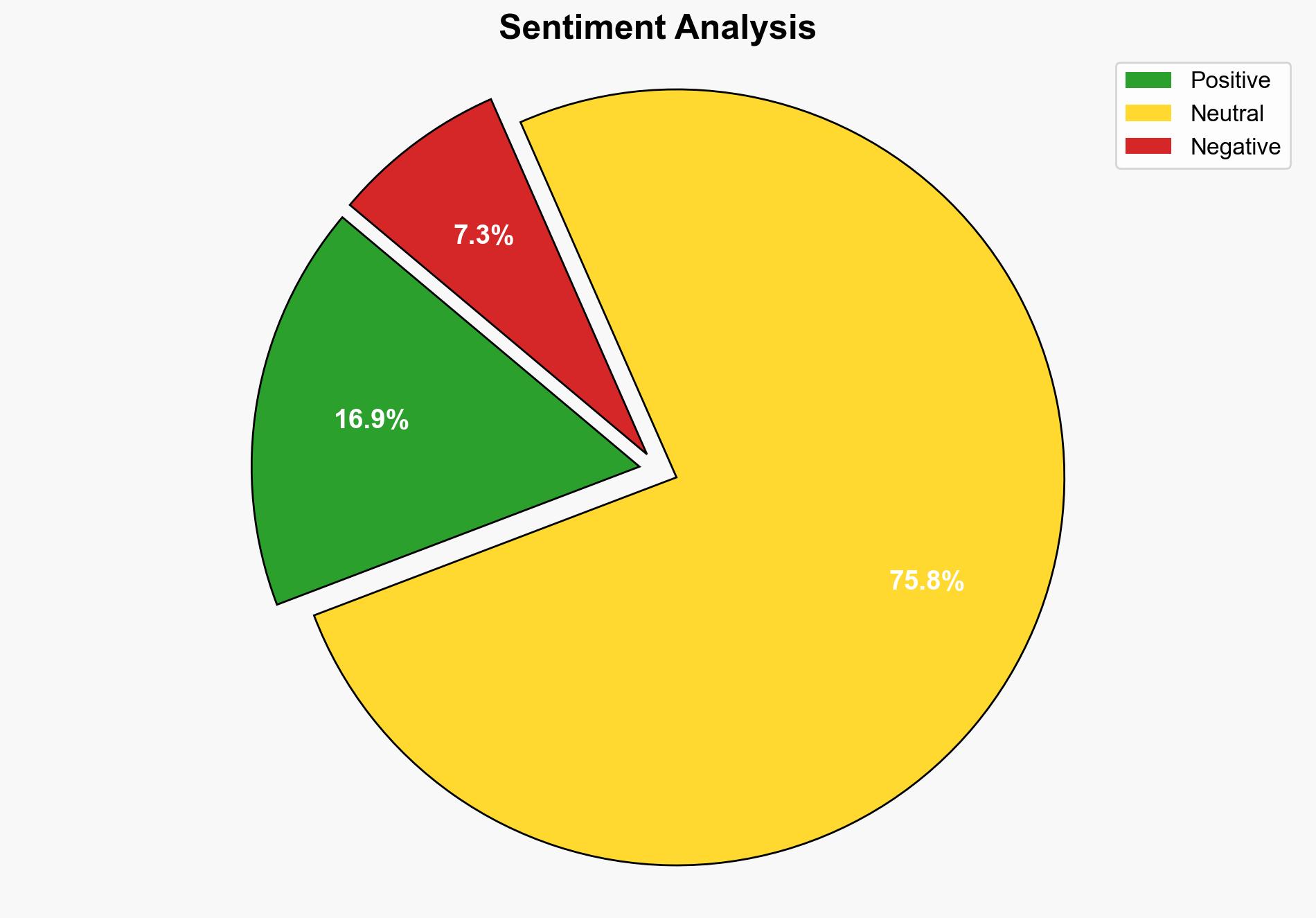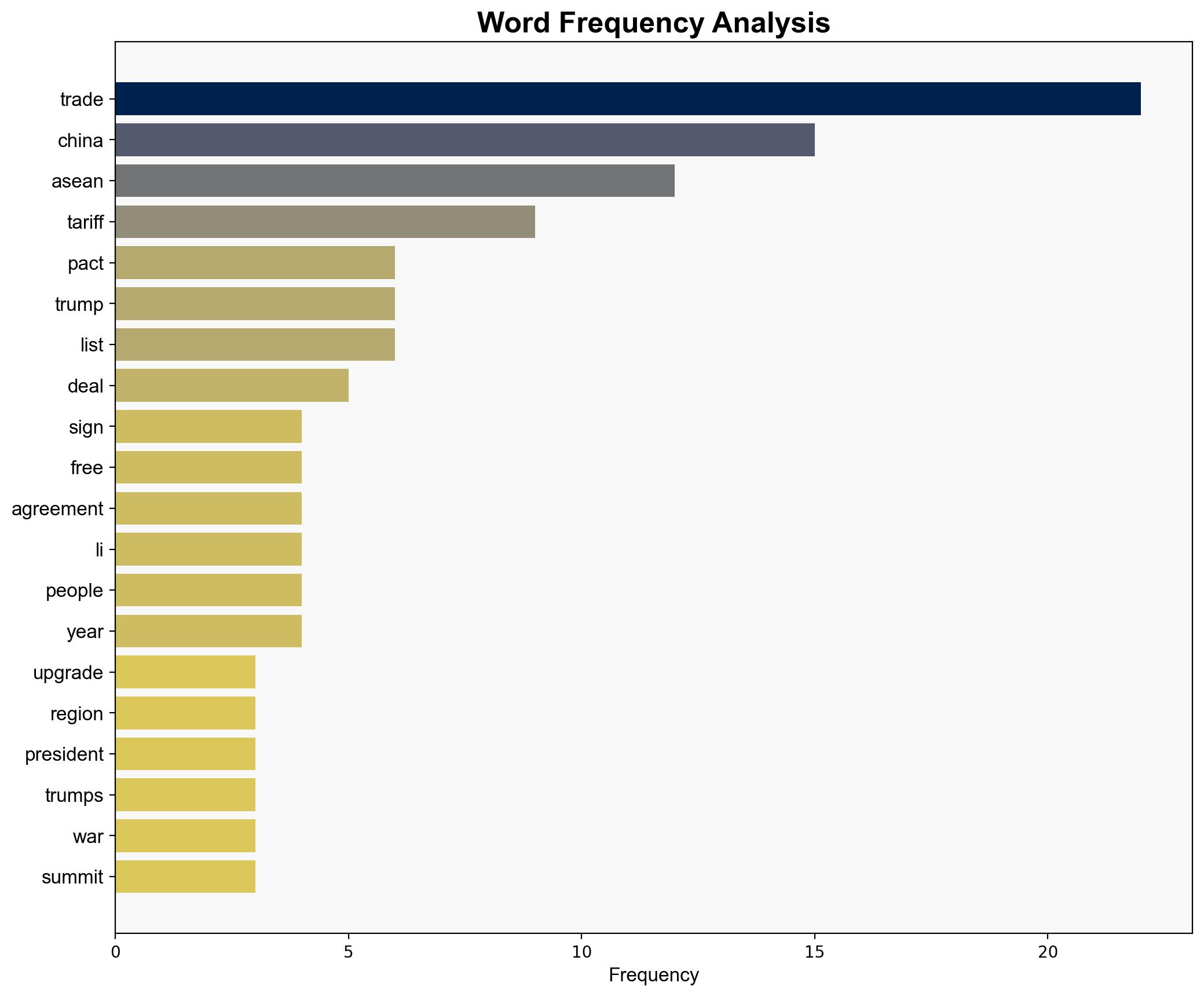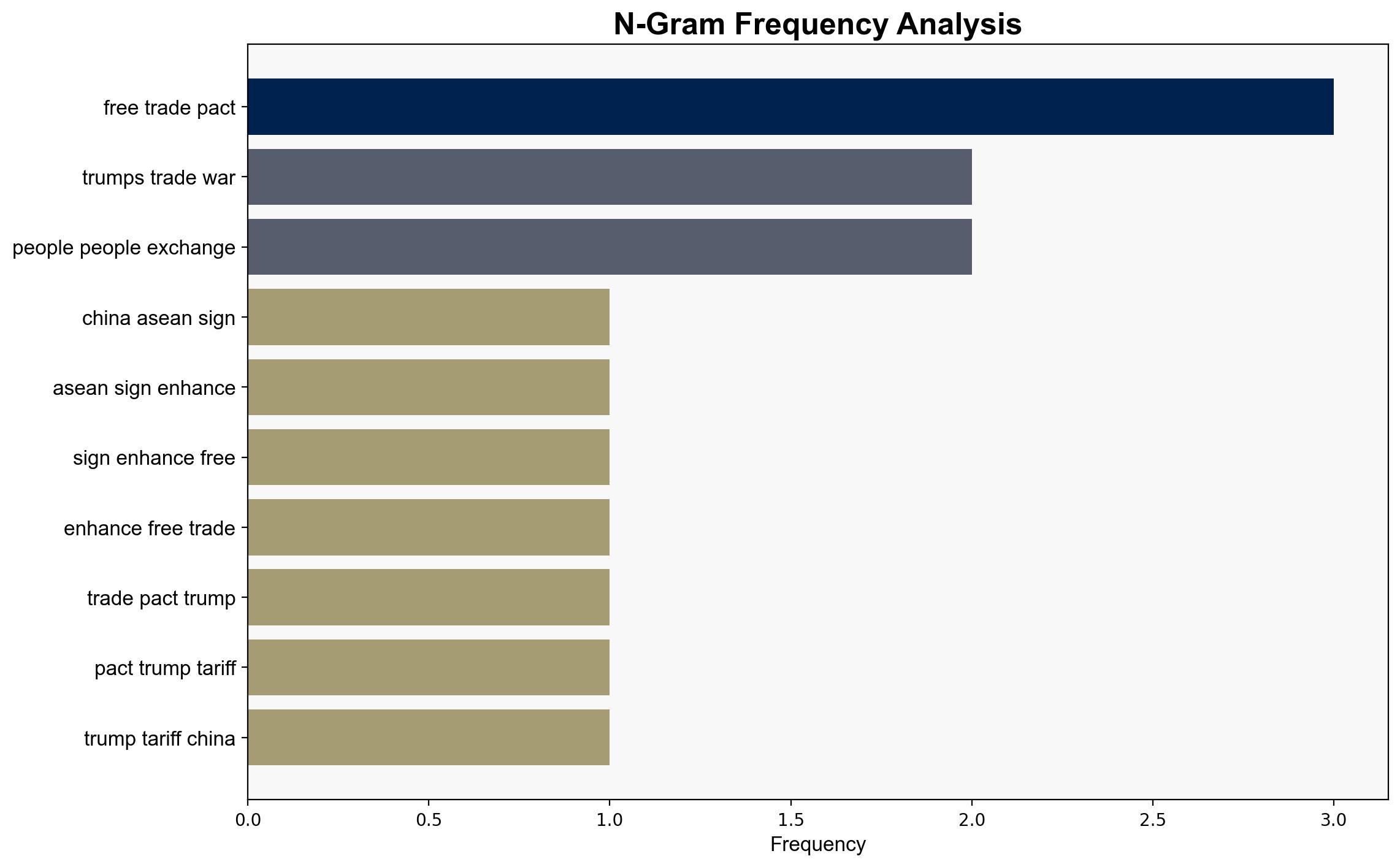China ASEAN sign enhanced free trade pact amid Trump tariffs – Al Jazeera English
Published on: 2025-10-28
Intelligence Report: China ASEAN sign enhanced free trade pact amid Trump tariffs – Al Jazeera English
1. BLUF (Bottom Line Up Front)
The enhanced free trade pact between China and ASEAN represents a strategic maneuver to counterbalance the economic impact of U.S. tariffs under the Trump administration. The most supported hypothesis is that this agreement is primarily a response to mitigate the effects of U.S. protectionism and to strengthen regional economic integration. Confidence level: High. Recommended action: Monitor further developments in U.S.-China trade relations and ASEAN’s economic policies to anticipate shifts in global trade dynamics.
2. Competing Hypotheses
1. **Hypothesis A**: The enhanced free trade pact is a strategic response by China and ASEAN to counteract the economic impact of U.S. tariffs and protectionist policies. This hypothesis is supported by the timing of the agreement, the emphasis on infrastructure and digital collaboration, and the need for China to secure alternative markets amid rising trade tensions with the U.S. and EU.
2. **Hypothesis B**: The agreement is primarily driven by ASEAN’s desire to deepen economic integration within the region, independent of external pressures from U.S. tariffs. This hypothesis considers ASEAN’s long-term strategy to enhance regional trade networks and reduce dependency on external powers.
Using ACH 2.0, Hypothesis A is better supported due to the explicit references to U.S. tariffs and the strategic context provided by Chinese and ASEAN leaders in the source text.
3. Key Assumptions and Red Flags
– **Assumptions**: It is assumed that U.S. tariffs significantly impact China’s trade strategy and that ASEAN countries are uniformly aligned with China’s economic goals.
– **Red Flags**: Potential overestimation of ASEAN’s cohesion and underestimation of internal economic disparities. Lack of detailed data on individual ASEAN member states’ positions could indicate selective reporting.
4. Implications and Strategic Risks
The enhanced trade pact could lead to increased economic interdependence between China and ASEAN, potentially reducing U.S. influence in the region. However, this may also heighten geopolitical tensions, particularly if the U.S. perceives this as a challenge to its economic policies. There is a risk of ASEAN countries becoming overly reliant on China, which could limit their strategic autonomy.
5. Recommendations and Outlook
- Monitor ASEAN’s economic policies and trade agreements for signs of shifting alliances or dependencies.
- Engage in diplomatic efforts to reinforce U.S. economic ties with ASEAN countries to counterbalance China’s influence.
- Scenario-based projections:
- Best: ASEAN diversifies its trade partnerships, maintaining balanced relations with both China and the U.S.
- Worst: ASEAN becomes economically dependent on China, reducing U.S. influence in the region.
- Most Likely: ASEAN strengthens regional integration while cautiously managing external relations with major powers.
6. Key Individuals and Entities
– Li Qiang
– Anwar Ibrahim
– Xi Jinping
– Scott Bessent
7. Thematic Tags
national security threats, regional focus, economic integration, trade policy




